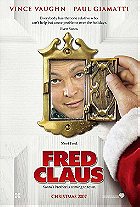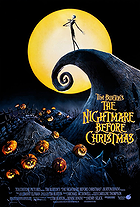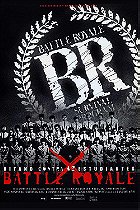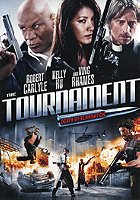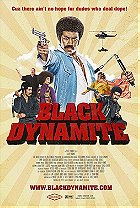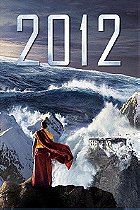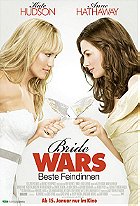The storyline of Christmas with the Kranks involves a married couple opting to forgo all Yuletide festivities for one year. You'd almost certainly skip Christmas too, if you had to endure Surviving Christmas, The Polar Express and now Christmas with the Kranks all in the one year. This glut of horrible films confirms that it's far more difficult to craft an effective Christmas movie than one might imagine. Memorable examples of festive movies are rarer than flying reindeer, and the fact that writer Chris Columbus was once involved with one (Home Alone) doesn't guarantee repeat success. Christmas with the Kranks, which was adapted from the John Grisham novel Skipping Christmas (the title was changed to avoid confusion with Surviving Christmas), is a through-and-though dud; joyless, laughless and boring. The nicest thing which can be said about it is that it's at least mildly better than Surviving Christmas, but oh boy is that a backhanded compliment...
Luther (Allen) and Nora (Curtis) Krank are upset over the prospect of spending Christmas without their daughter (Gonzalo) who has joined the Peace Corps. So the two Kranks (Get it? Kranks? What comic genius!) decide to skip Christmas for the year, and use the money they'd normally spend on annual holiday traditions to instead take a Caribbean cruise. For reasons never quite logical enough to work, Luther also decides to "boycott" everything to do with Christmas. This extends to not buying gifts, not sending Christmas cards, refusing to decorate their home, not returning a "Merry Christmas" gesture to a friendly passer-by, and taking absolutely no part in the neighbourhood gatherings or parties. Meanwhile Nora, who lacks any kind of backbone, just goes along with it. That is, until a convenient plot wrinkle ensures everyone will have to pull together and enjoy some holiday spirit, and the film turns all sentimental despite the fact it has not earned the right to do so.
Look, the idea of simply skipping Christmas is fine, and Luther & Nora have a good reason to blow their Christmas budget on something more fun. They don't hate Christmas and their feelings haven't changed...they'll even be celebrating the following year. Unfortunately, the Kranks have the grave misfortune of living in one of those sitcom-type neighbourhoods where everyone knows everyone else's business, and the idea of a house on the block not draining power with an outdoor light display is outrageous. As part of the film's uneven attempt to turn itself into a jolly holiday farce, the neighbours (lead by Vic Frohmeyer - played by Dan Aykroyd as a bullying, Chicago-style ward boss) have nothing better to do with their time, and begin protesting. In other words, the entire neighbourhood believe they know what's best for the Kranks and have every right to harass them to a disconcerting degree, and the movie acts as if their actions are perfectly normal. Why they care so much is anybody's guess.
Once a major plot contrivance surfaces, the Kranks decide they want to celebrate Christmas now. Suddenly the film abandons the idea of Christmas as a shallow, vapid, expensive, cult-like celebration, and instead transforms into a sappy celebration of the meaning of Christmas. Attempts at being funny are dropped, and the film becomes unforgivably lame as it deflates into a confused mess. Christmas with the Kranks can't decide whether it wants to condemn the gift-powered holiday or laud it as a community experience. It alternates between these competing ideologies while struggling to find humour in the overacting characters. Even weirder is the film's final shot which features a waving CGI snowman and the unexpected emergence of Santa in a fucking Volkswagen Beatle being pulled by magical reindeer. The large gaps in logic haven't even been mentioned yet - like why would Luther's neighbour agree to let him "borrow" their Christmas tree overnight? How did Frohmeyer's son get the keys to a set of handcuffs, and why on Earth would he release a detained prisoner so he could grab food at the Kranks' party?
The illogical plot points and lack of realism could be forgiven, if only there were laughs to be had. But Christmas with the Kranks relies on tired physical comedy and badly-written dialogue - it plays out like a series of sitcom outtakes. People get comically electrocuted, carollers slip on ice, Nora is caught in a bikini by a minister, there's the painfully predictable race for the last of a certain food item in stock, and Luther takes a predictable header when he's trying to install a gigantic snowman on the roof. I put the question to you: has Tim Allen EVER been part of a movie in which he didn't fall off a roof? Like TV sitcoms, character development can best be described as perfunctory too. There's no-one in this movie worth caring about. Behind the camera is Joe Roth, the chairman of Revolution Studios, who demonstrates yet again that he should stick to signing paychecks instead of helming multi-million dollar film productions.
The whole message of the movie is to not be so selfish, but it's incredibly selfish of the neighbours to demand the Kranks follow their demands to the letter, and that they try to enforce their demands using any means possible. If one looks deep into the "message" of this movie, one will unveil a more disturbing notion: it suggests that the only way to find peace is to do exactly what your neighbours are doing...to give into peer pressure and don't dare to be different. How fucking lovely.
Christmas with the Kranks also lacks the heartfelt simplicity and sublime truths evident in other Christmas classics. There's no emotional core here - only sloppy excess, random broad strokes, and a decided lack of conviction from filmmakers and performers alike. Both Tim Allen and Jamie Lee Curtis are disagreeable and utterly flat. Curtis in particular goes ballistic with her over-the-top performance. And has no-one bothered to inform Allen that the mugging, one-note performance style that served him well in TV does not translate well to the big screen? It's impossible to feel love in the relationship between Nora and Luther, and there's an inescapable sense that this couple is tired of being together - thus we soon become tired of watching them together. Given that the Kranks' decision to skip Christmas is based solely on economic consideration rather than a sense of self discovery (or desire for heartfelt change), the duo often feel callous and shallow. By the time their inevitable reorientation towards the Christmas spirit arrives, the characters aren't likeable - why the fuck do we care when they finally find enlightenment?
Christmas with the Kranks could've been a satirical condemnation of the commercialism and consumerism of Christmas. It could have been a clever jab at the pressure that communities exert on non-conformists. Or it could have been a hilarious, old-fashioned string of mishaps (a bit like National Lampoon's Christmas Vacation). But this tripe fails on all accounts. There's not enough edge for the satirical elements to work, and the cloying melodrama interferes with the ham-fisted attempts at comedy. This is the sort of film that leaves you thinking that Ebenezer fuckin' Scrooge had the right idea about the festive season.
1.9/10
 Login
Login
 Home
Home 183 Lists
183 Lists 1670 Reviews
1670 Reviews Collections
Collections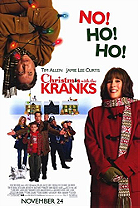
 0 comments,
0 comments, 

